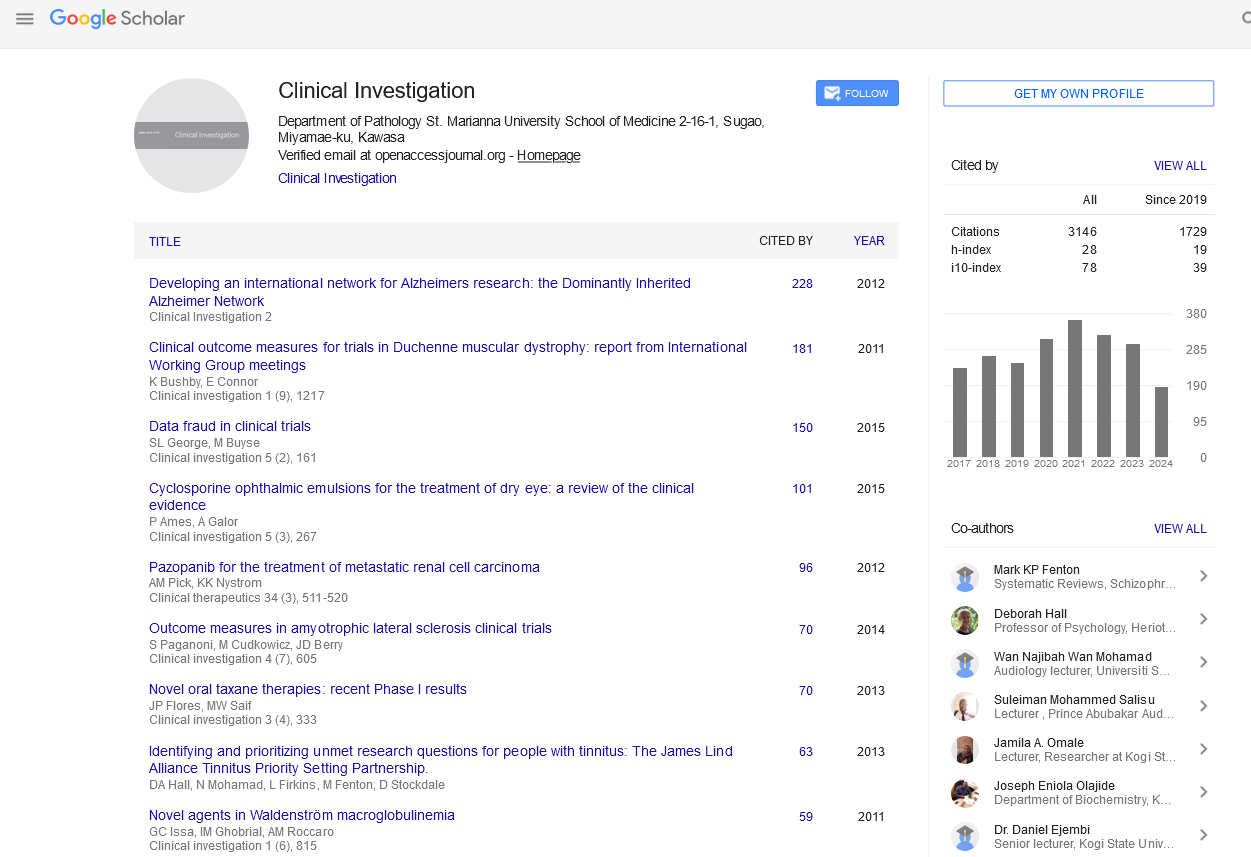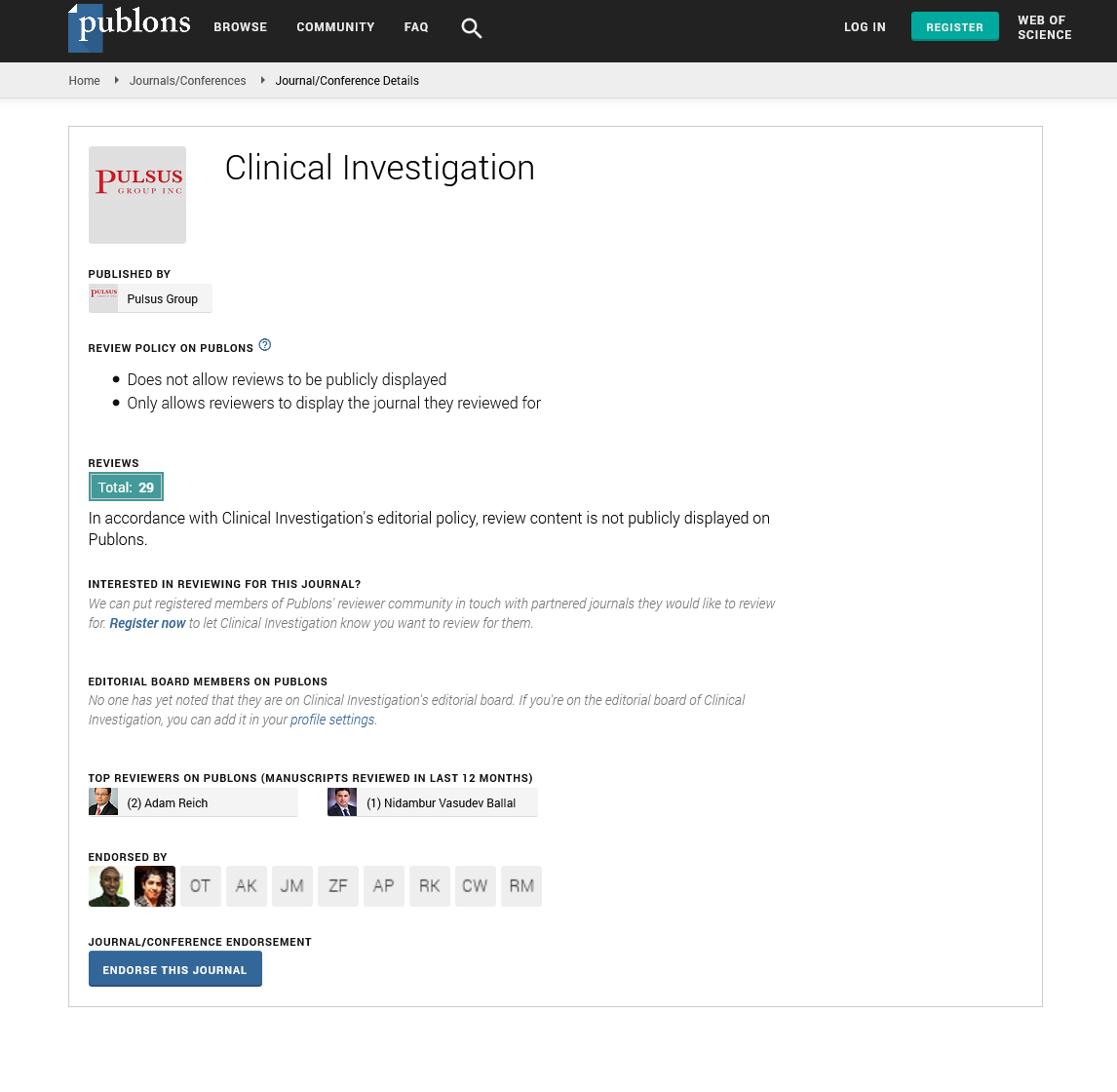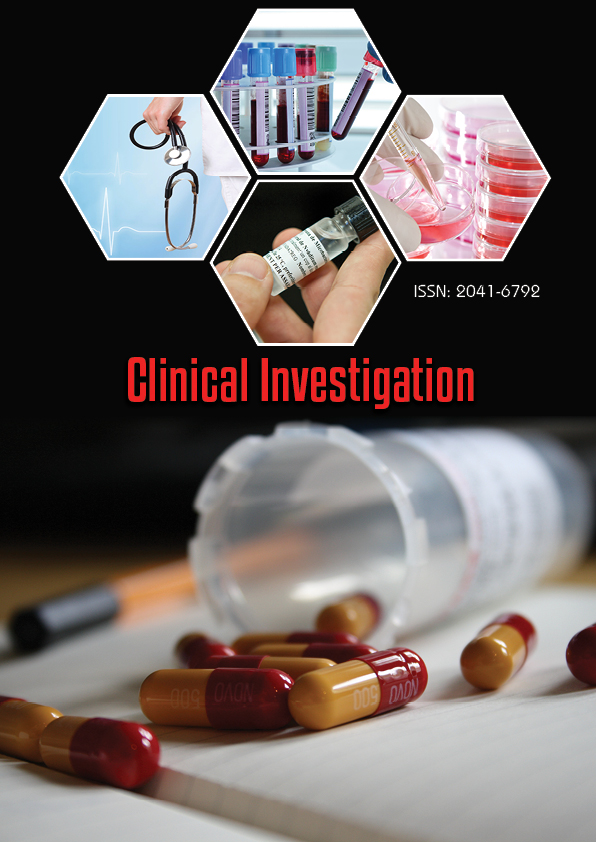Short Communication - Clinical Investigation (2021) Volume 11, Issue 12
Survivor’s and family member’s perspectives on health data studies on sudden cardiac arrest
- Corresponding Author:
- Erica Bronen
Editorial Office, Journal of Clinical Investigation, London
E-mail: clinicalinvest@escienceopen.com
Abstract
As patients become momentarily debilitated or die, consent for data study in acute and critical care is complicated. Existing European Union standards and laws are of limited assistance, and there is a paucity of literature on the use of data from this vulnerable group. We investigated the perspectives of patients and next-of-kin on the collecting, storage, sharing, and use of genetic and health-related data for observational research to help create a patient-centered framework for responsible data research in the acute environment. Dutch SCA survivors who generously gave clinical and socioeconomic data as well as genetic materials to research. We also spoke with their relatives. Topics were based on ethical literature, and scenario-sketches were utilized to facilitate discussion of complicated themes. Sudden cardiac arrest survivors showed little understanding of their participation in health data research and the terms of their agreement. We discovered that people's preferences for disclosing clinically actionable genetic results can shift over time. Patients trusted researchers to handle data responsibly without regard for privacy or other dangers when data collection and use were limited to the medical field. There was no agreement on whether survivors should be approached expressly for postponed consent. If consent is sought, it should be sought a few months after the event, when cognitive abilities have returned. The necessity of obtaining proxy authorization for research using the data of deceased patients was a point of contention. However, there was widespread agreement that relatives should be informed of any potentially significant post-mortem genetic findings.
Keywords
Heath • Cardiac arrest
Introduction
If consent is sought, it should be sought a few months after the event, when cognitive abilities have returned. The necessity of obtaining proxy authorization for research using the data of deceased patients was a point of contention. However, there was widespread agreement that relatives should be informed of any potentially significant post-mortem genetic findings. With improvements in big data and machine learning, as well as the rise of biobanking, the use of patient data for research has a lot of potential to enhance care and reduce the burden of sickness on patients and health care systems. Simultaneously, the analysis of health data raises ethical and legal issues, particularly when it comes to the privacy of subjects’ personal information. The more ‘larger’ these data are (e.g., in terms of quantity, detail, variety, accessibility, or scope of prospective uses), the more difficult it becomes to protect patients’ autonomy through methods such as anonymization, if possible, and informed permission, which requires comprehension of the research. Furthermore, health data research may raise ethical concerns at the group level, such as stigma and unfair discrimination [1]. The General Data Protection Regulation (GDPR) of the European Union went into effect in 2018 to standardize data protection standards across the EU and provide data subjects more control over their personal data than the previous 1995 Directive. Genetic, biometric, and other health-related data are classified as “personal data indicating racial or ethnic origin, political ideas, religious or philosophical beliefs, or trade union membership, or data concerning a natural person’s sex life or sexual orientation” under the GDPR [2]. While there has been considerable discussion of the challenges surrounding interventional research in patients with acute and critical illnesses, there is a paucity of literature on the proper use of data from this patient population in observational studies. A number of ethical issues arise when researchers use data from persons with acute life-threatening diseases (e.g., stroke, SCA, traumatic brain injury, or acute respiratory failure due to infectious disease). Is a consent waiver, for example, permissible to allow the use of data from patients who are unable to give consent? While explicit informed consent has long been the gold standard in clinical trial ethics, several jurisdictions allow ethics committees to waive the consent requirement or enable opt-out methods for registry and bio banking studies if certain requirements are met, such as anonymization. Because completely anonymous data does not fall under the purview of the GDPR, there is often no requirement to get consent. Working with totally anonymized data is especially difficult in emergency medicine because of the various data sources in the “chain of care” and the requirement to link those using personal identifiers. Anonymization has another drawback: it would be hard to return therapeutically relevant and actionable (genetic) study findings to patients if they were completely de-identified. Furthermore, the acute and critical care context is unique in that a significant number of patients will not survive their unexpected medical crisis or hospitalization. The survival rate for SCA varies greatly across Europe, ranging from 3% to 23% [3]. However, there is no international agreement on whether or not post-mortem observational research without consent from next-of-kin is acceptable, or what criteria should be applied.
The increasing input of deceased people to health research databases raises concerns about researchers disclosing specific genetic findings to relatives. The majority of genetic arrhythmia syndromes and cardiomyopathies that raise the risk of SCA are autosomal dominant (providing a 50 percent chance to be passed on to either sex). Disclosure of such findings can aid in the tailoring of preventative treatments, but it can also raise concerns among recipients about their health, their right to privacy, and family decisionmaking. Should the results of these individual studies be communicated to the deceased’s family members after his or her death? Should a person’s decision that his or her family not be informed of any clinically actionable genetic findings be honored after his or her death? Current ethical principles and regulations, including the GDPR, do not provide sufficient direction on the use of data for research after it has been collected. We believe it is crucial to acquire patient perspectives on topics like as informed consent and other pertinent problems, particularly in the acute situation, because critical unwell participants’ decisionmaking capacity is missing or severely reduced. As a result, we present our findings in this paper, which are based on interviews with Dutch SCA survivors and their relatives about the donation of their data to research, with the goal of contributing to an empirically informed, patient-centered ethical framework on data use in emergency care research, as well as to the broader health data privacy debate. The ethical considerations raised, however, are also relevant to research in other countries and in other emergency situations [4,5].
References
- VA Atsurovskiy. Generalether-dynamics.Energoatomizdat. Moscow, Russia. 278;(1990).
- LV Kiknadze,Yu G Mamaladze. Classicalhydrodynamics for physicists-experimentalists.Tbilisi University Press. Tbilisi,Georgia. 136;(1979).
- AP Babichev, NA Babushkina et al. Physical constants handbook. Energoatomizdat. Moscow, Russia. 1232;(1991).
- C K Kadyrov. Physicaltheoryof unified field.Kyrgyz zer. Bishkek, Kyrgyzstan. 33;(2001).
- A.P.Gulyaev;Astronomycalendar.Cosmosinform.Moscow,Russia. 285;(1993).


